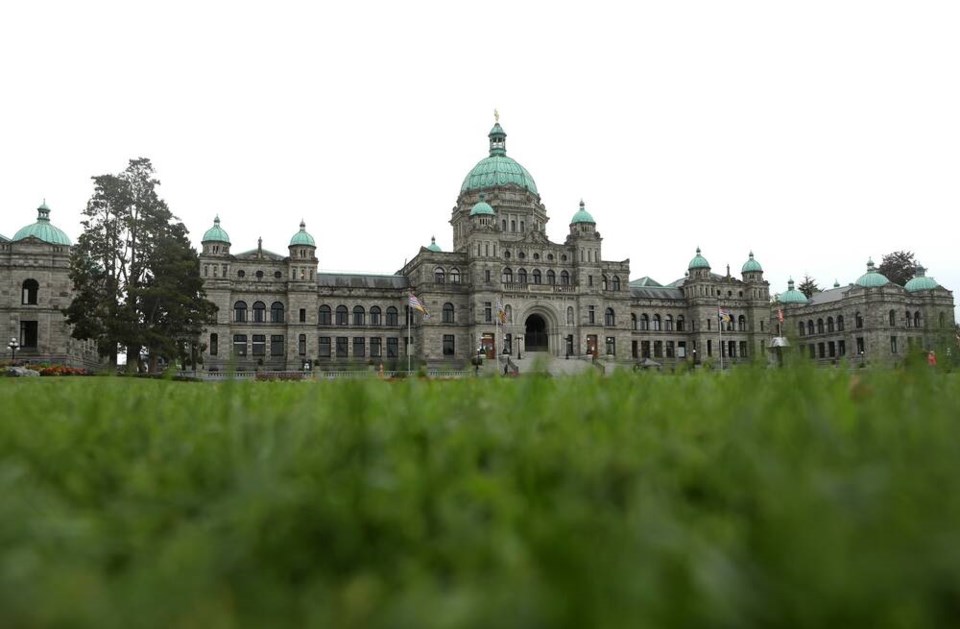By accident or design, the B.C. government introduced a major rewrite of emergency legislation Tuesday at the same time Ombudsperson Jay Chalke determined emergency support programs are under-resourced, poorly-communicated and unfair.
His office focused on the cataclysmic fires and floods of 2021, when B.C. was hit by two weather disasters just five months apart.
Volunteers and communities came together to help and the government got tens of millions of dollars into the hands of people who needed it. But the overall effort came up short, which is bad news in a province where climate emergencies are becoming more frequent.
“Government is trying to respond with a framework that is decades old and insufficient,” said the report.
Most of the response is through emergency support services — immediate help through the first 72 hours, and disaster financial assistance providing longer-term aid for under-insured and uninsured victims.
Communication about those programs is unclear and confusing, there are unreasonable delays, and they short-change Indigenous evacuees and others who badly need help, Chalke found.
The Ministry of Emergency Preparedness and Climate Change, created just nine months ago, as part of the ongoing response to 2021, immediately accepted all 20 of Chalke’s recommendations.
He welcomed that news, and noted the new legislation introduced Tuesday, the Emergency and Disaster Management Act.
But he said: “As with any legislation, we know it’s going to take months or even years to see change on the ground.”
Some of the changes he recommended won’t be covered in the bill and would have to be accomplished through regulations.
He noted people caught in fire emergencies this past summer experienced delays in getting help, although they weren’t as lengthy as in 2021.
The government acknowledged the legislation will be implemented “over time.” For more immediate impact, a task force was created to come up with ideas in advance of next year’s fire season.
Fourteen experts will begin work on enhancing emergency preparedness and response.
It’s worth recalling an observation from 20 years ago, after the Okanagan firestorm ravaged hundreds of homes.
An independent review by Gary Filmon came with a host of recommendations and closed with: “This report provides for a plan of action. Its implementation, effectiveness and success depend on the willingness, ability and commitment of those tasked with moving it forward.”
Rough welcome for fledgling B.C. Conservative Party
Just So You Know: The B.C. legislature’s new expansion team started league play Tuesday and got checked into the boards on the first play.
The fledgling B.C. Conservative Party caucus debuted by pushing a social conservative hot button — raising the sexual orientation gender identity in schools issue. But party leader John Rustad took a heavy hit from Premier David Eby, who up until Tuesday had been only too happy to welcome a fourth party into the house.
Rustad (MLA for Nechako Lakes) took over leadership of the Conservatives after getting bounced from the BC United caucus for being persistently dubious about climate change. He recently picked up Abbotsford South MLA Bruce Banman, who bolted BC United over the party’s stance on gender identity, the carbon tax and drug policies.
Eby’s government has been solicitous in welcoming the new outfit, since splits in the centre-right are obviously good for them.
But the welcoming attitude vanished Tuesday when Rustad started talking.
Citing parents’ concerns about sexualization of children under SOGI, he asked the NDP to admit the program is failing. Eby jumped up and said for Rustad to “find a small group of kids in our province … make them feel less safe in our communities, to feed the fires of division and bring culture war to B.C, it is not welcome.
“It is outrageous that he would stand here and do this. He sees political advantage in picking on kids and families and teachers and schools who are just trying to do their best for kids who are at risk of suicide. Shame on him. Choose another question.”
It brought most MLAs to their feet with applause.
Rustad followed up by saying the NDP is creating division and “thousands of people are taking to the streets” to protest SOGI.
“This isn’t about attacking a particular group of people. This is about having a policy that is inclusive.”
Whatever the case, he managed to bring most of the legislature together Tuesday — supporting the premier who was attacking him.
>>> To comment on this article, write a letter to the editor: [email protected]



